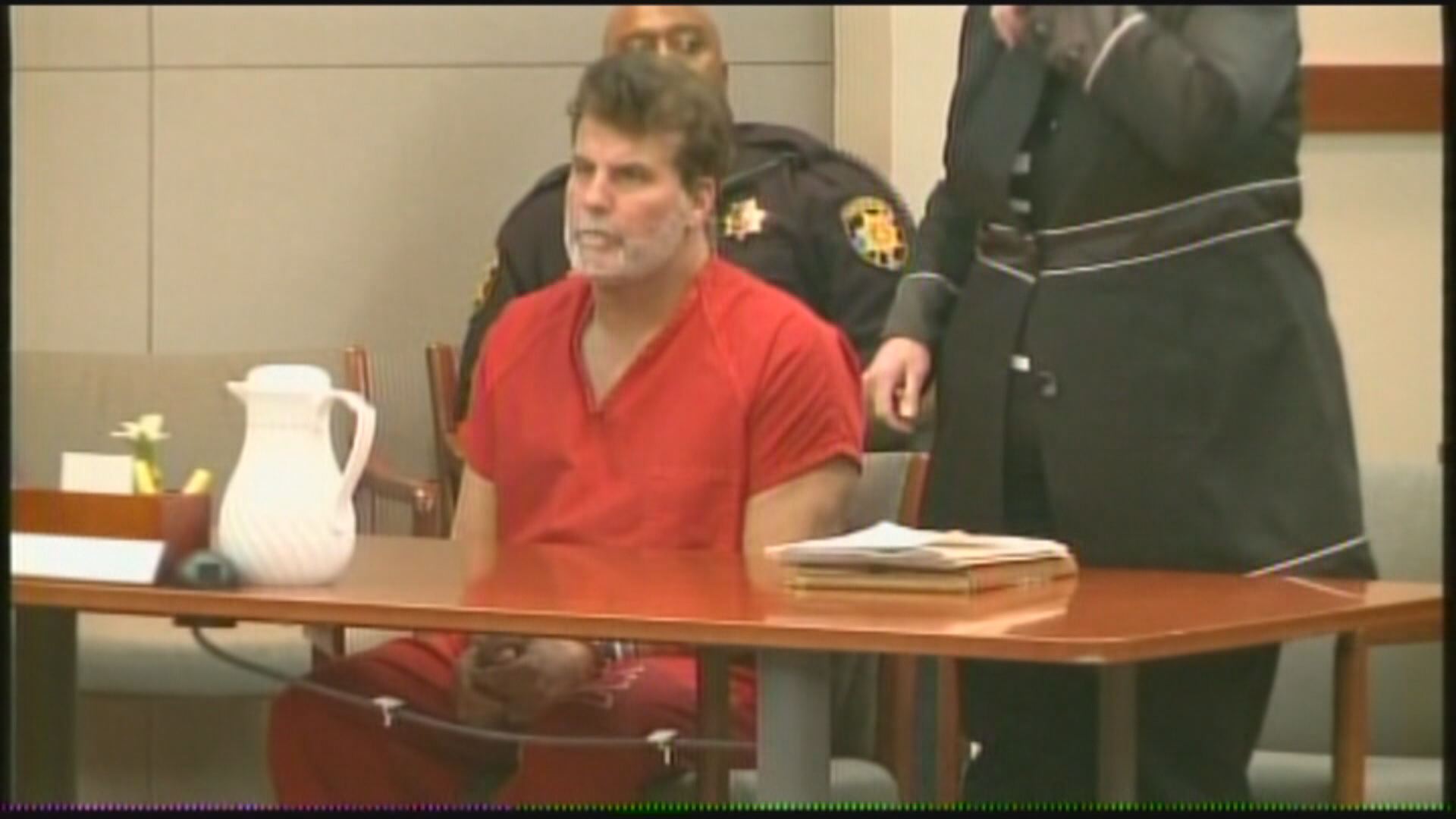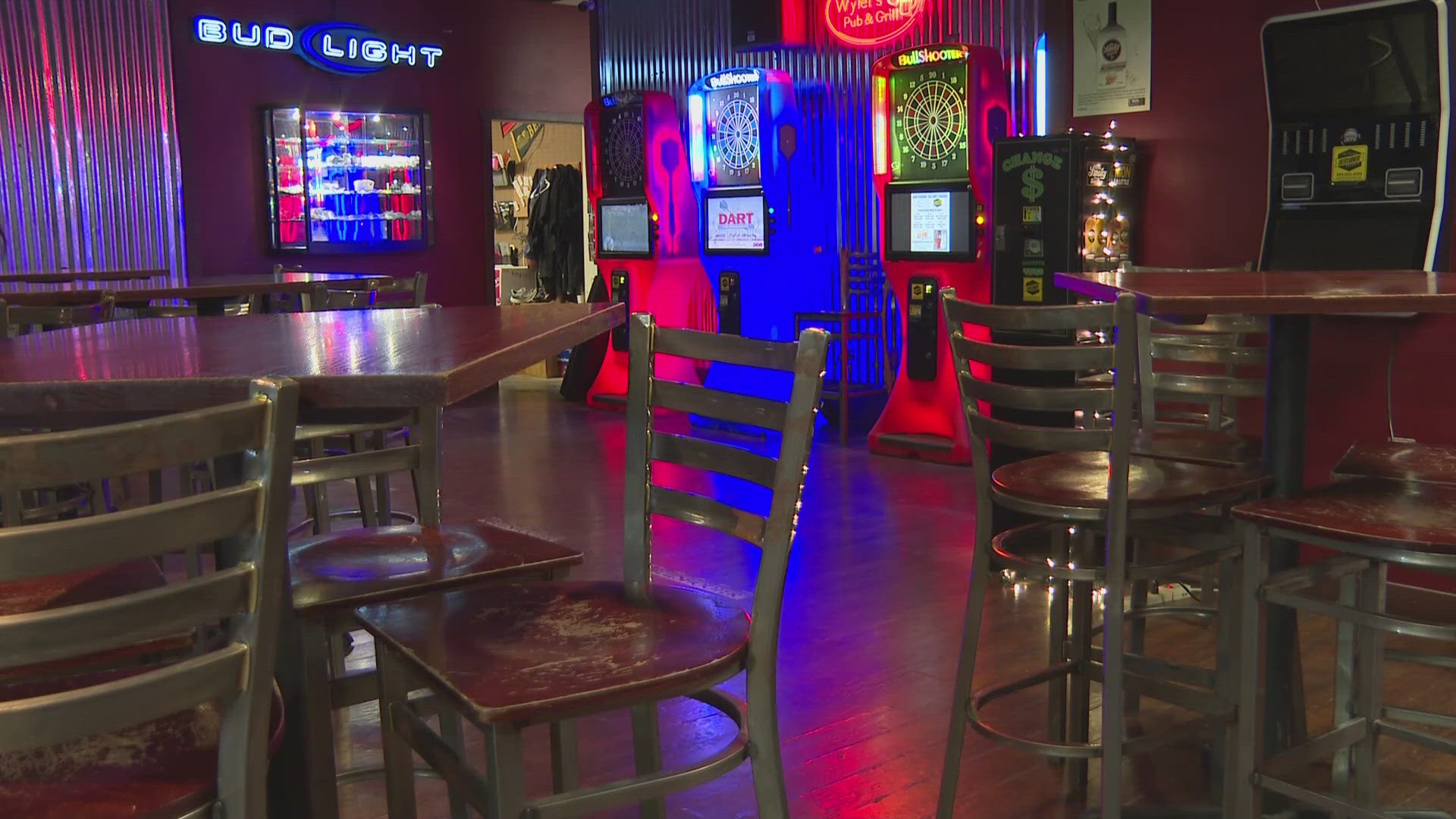KUSA – The Colorado Department of Corrections changed its inmate-banking policy once victims and 9NEWS raised concerns after a man convicted of murder-for-hire was able to save thousands in his prison bank account while behind bars.
Christopher Wells was convicted in a murder-for-hire plot that left his soon-to-be-ex-wife Amara Wells and brother-in-law Bob Rafferty dead.
Rafferty's wife and Christopher's sister, Tammy, came to 9NEWS in 2013 worried about what she felt was an unchecked prison-banking system currently in place.
In August 2013, the DOC promised 9NEWS Crime and Justice Reporter Anastasiya Bolton something would be done. Now, the amended policy is in effect.
Survivors compare it to giving a gun to a murderer
Melissa Brown's sister, Amara Wells, was killed in the murder-for-hire case. The fact Christopher Wells is in prison doesn't matter. It doesn't matter he's there for life. All Brown can think of is the man convicted of killing her sister paid others to do it. She thinks he could do it again.
"As long as Christopher Wells is alive, I don't know that I'll ever know what personal safety is," said Brown.
Investigators say Wells promised the actual killer, Josiah Sher, $10,000 to murder his soon-to-be-ex-wife Amara Wells and $5,000 to kill the other two people in the house.
Amara was staying with Wells' sister and brother-in-law.
In February 2011, Sher killed Amara Wells and Bob Rafferty. Wells' sister Tammy Rafferty was supposed to be killed the night her husband Bob and sister-in-law Amara were murdered. She was out of town on business and survived.
Court records say Sher never got paid for the murders he did commit.
He pleaded guilty to the murders, avoiding the death penalty. Instead, he received two consecutive life sentences in prison. Two other defendants, Matthew Plake and Micah Woody pleaded guilty to their roles in the crime and were sentenced to 48 years in prison each. According to court documents, Plake drove Sher to the home before and after the murders. Court documents also indicate Wells asked Woody to hire someone to kill three people.
"I don't think I will ever feel safe as long as there is somebody like Garth Willson on the outside paying Chris Wells," Rafferty said.
Garth Willson was interviewed by Douglas County Sheriff's Department detectives three times during the course of the murder investigation.
He was never named a suspect.
"I'm a friend of Chris'. We're not super close," Willson said in a video-recorded interview with the detectives in 2011.
During the interviews, Willson told detectives Wells gave him $75,000 about seven months before the murders.
Willson: "I'm going to tell you July 2010, [Chris Wells] gave me $75,109 and change. 'Put it in your account and just hold it.' I put it into an account and invested it into stock trades and some stocks."
Detective: "What was the conversation prior to him giving you the $75,000, was it 'hide this?' Was it 'hang on to this?'"
Willson: "He told me 'so Amara couldn't get it.'"
Wells pleaded guilty and went to prison in March 2012. Since then, records show Willson has been making monthly $300 deposits into Wells' Department of Corrections account.
The money he told detectives in 2011 belonged to someone else.
Willson: "I'd like to give it to his daughter."
The family who adopted Chris and Amara's daughter, Alex, says they still haven't seen any of that money.
"Knowing that he said that and you fast forward now three-and-a-half years, with multiple times he has been contacted, his attorney's been contacted, there have been numerous ways for him to give this money back to the estate of Amara for [Chris and Amara Wells' daughter] Alex and still, every month there's the $300 deposit made to Chris Wells' account," Rafferty said. "Why wouldn't somebody do what they could to bring this marital asset money back over to the little girl who lost both parents, and instead why would someone chose to continue to pay the convicted murderer?"
When reached on the phone, 9NEWS asked Willson the same question. 9NEWS also requested an interview. Willson declined to comment.
At the time of 9NEWS' first two stories in August 2013, Wells had saved up over $3,000.
His balance as of the beginning of July 2014 is nearly $4,000. The DOC said Wells recently made a large technology purchase.
Since Wells used money as a weapon, Rafferty and the family were worried.
They shared those concerns with the Colorado Department of Corrections.
"We know that ours [case] was somewhat unique because it was a murder-for-hire case," Rafferty said. "But [it] really made no sense for someone doing a life sentence without parole to amass money, whether murder for hire or not."
Beginning in June and effective July 4, CDOC instituted a new inmate banking policy.
"They did do the right thing and that has given us some peace of mind in the situation," Brown said.
Under the amended administrative regulation, if an inmate owes restitution and or child support, everything over $2,500 in their account will go to pay that off. Once they don't owe the victims anything, DOC can start charging for the cost of their care.
"One was concern obviously for victims ensuring that they have the amount of money that was owed to them paid as quickly as possible," said CDOC executive director Rick Raemisch. "There was one victim in particular that we felt had the need to have this addressed where we would lower the amount that was in an inmate's account."
DOC says 89 inmates have balances between $2,520 and $14,078. Of those, 33 owe restitution. Wells is one of them.
"Murder for hire is something that I have seen happen on occasion," Raemisch, a 30-year veteran of law enforcement said. "This particular case is one that it's probably first I've seen this type. In the sense that here is a proven track record from an offender that any threats or inferences of threats you have to take very seriously."
In all, DOC houses 20,483 inmates. The department says most offenders don't have much money in their accounts. The average offender balance is $63.
In all, offenders at DOC owe roughly $566 million in restitution. Inmates who have less than $2,500 in their account will continue to pay 20 percent of their monthly deposits towards restitution and/or child support.
Wells owes $33,405.34 in restitution to the Brown and the Rafferty families. Since he's been in prison starting in March 2012, his restitution payments vary from about $70 to $120. He doesn't owe any child support because the Browns adopted Alex.
DOC says Wells' DOC account has been frozen, meaning any purchases he wants to make outside of the prison system have to be approved by the warden.
"The system is in place to protect us," Rafferty said. "We just need to make sure we're bringing it to their attention. I think what we have learned through all of this is no one signs up to be a victims' advocate. You don't go into this scenario thinking 'you know, I have these super powers.' All you have is your voice and the choice to use it, to make a better world for others is what we're trying to do. But we definitely have a selfish side too, and we want to protect ourselves, our children, our families because we've seen the worst that can happen and we know it can happen again."
"We live it every day," Brown added.
Under the new policy, DOC says if Willson or anyone continues depositing money into Wells' prison account, everything over the $2,500 balance will go towards restitution.
Brown and Rafferty said they don't care about the money.
"It's for our safety in order to hopefully prevent him from carrying out any actions," Brown said.
(KUSA-TV © 2014 Multimedia Holdings Corporation)


